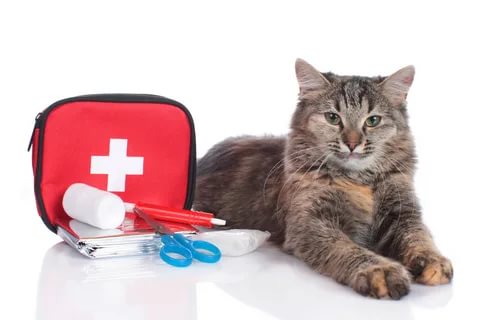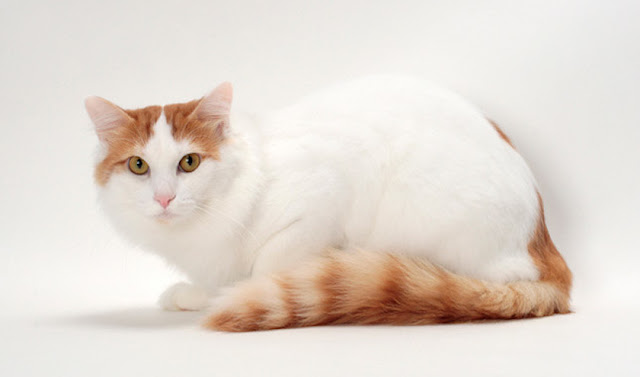Keeping your feline's wellbeing fit as a fiddle isn't in every case simple, particularly when they're incredibly skilled at concealing a sickness. So how might you recognize when your catlike companion isn't feeling so hot? Being acquainted with gauge vitals, for example, what a typical feline temperature is and the number of pulsates each moment show a solid feline pulse, can assist you with getting a heartbeat on your pet's wellbeing.
What Are Normal Vital Signs for Cats?
Checking your feline's indispensable signs at home is an incredible method to measure their wellbeing, especially on the off chance that you feel they've been acting a gnawed off. The standard vitals, or what's considered "ordinary" for felines, are as per the following:
Internal heat level: Between 99 and 102.5 degrees Fahrenheit (37.2 - 39.2 degrees Celcius)
Respiratory rate: A normal of 20 to 30 breaths each moment
Pulse: About 160 to 180 beats each moment (this will differ dependent on level movement, age and wellness)
Pulse: Between 120 and 130 mmHg (millimeters of Mercury)
The most effective method to Check Your Cat's Vitals
To guarantee you're checking these vitals accurately, you'll need to ask your vet for direction. So, here are some essential tips for observing your feline's wellbeing, the instruments you'll have to check every one of these four crucial signs, and what anomalous readings may show.
1. Temperature
There are two different ways to decide whether your pet has an ordinary feline temperature; lamentably, your feline is presumably not going to like possibly one. Professional tip: Recruit a companion to hold your kitty during these fragile methodology, recommends Cat Health.
Rectal: Rectal temperatures are more exact than ear temperatures. For this strategy, hold your feline easily, guaranteeing their back legs are upheld. Utilize a rectal thermometer and cover the adaptable tip with an ointment, for example, petrol jam. Tenderly addition the thermometer into their rectum, simply past the tip of the thermometer and no further or you'll chance injury. Hold the thermometer consistent until it signals, at that point tenderly eliminate it to see the perusing.
Ear: Use a computerized ear thermometer for ear temperature readings. Note: You needn't bother with grease for ear readings. Hold the device at a 90-degree point and be mindful so as not to harm your kitty's eardrum. At the point when the thermometer signals, delicately eliminate it and verify whether it's inside an ordinary feline temperature range.
A raised temperature, particularly when combined with manifestations, for example, shortcoming, fast heartbeat and gasping, can be demonstrative of sickness — truly, felines do get fevers. Fevers can make you aware of the presence of a bacterial contamination, aggravation or lack of hydration, among different issues. Contact your vet immediately for exhortation and treatment choices should you speculate a fever.
2. Respiratory Rate
To assess your feline's breathing at home, they should be in a resting state — that is, snoozing or conscious, however not going around. Have your telephone or a watch helpful to time their breaths to the second. "Ordinary respiratory exertion in a resting canine or feline methods the sides of the chest rise and fall at a normal beat," as per Brewster Veterinary Hospital.
Stand a foot or two away from your kitty to see the two sides of their chest. Time their breathing to check whether it coordinates with normal vitals and to guarantee that their breathing isn't toiled. You can likewise hold your hands tenderly on their chest to feel the musicality of their relaxing.
Vets are infamous for having the option to "read" a respiratory rate just by taking a gander at a creature. However, felines can get apprehensive at a test, encountering misrepresented breathing that while simpler to screen, may prompt a conceivably wrong evaluation. At home, consider recording your feline in a resting state to help you — and your vet, as well — better figure out what your feline's typical respiratory rate is, proposes specialists in the Department of Clinical Science of Companion Animals at Utrecht University in the Netherlands.
The two driving reasons for breathing challenges in felines are asthma and congestive cardiovascular breakdown, as indicated by the Cummings School of Veterinary Medicine at Tufts University. To be protected, think about carrying your kitty to a crisis facility on the off chance that you notice any windedness. Much the same as people, felines are defenseless to upper respiratory contaminations, colds and seasonal influenza, so watch out for wheezing, laziness, a runny nose and breathing anomalies.
Vet checks a felines vitals utilizing a stethoscope.
3. Pulse
There is a connection between's feline pulse and circulatory strain — and it's not difficult to get the two stirred up. "While your circulatory strain is the power of your blood traveling through your veins, your pulse is the occasions your heart pulsates each moment," clarifies the American Heart Association.
The most ideal approach to check your feline's pulse is with a stethoscope — an errand pet consideration specialists encourage leaving to the vet. Nonetheless, you can check this essential at home by putting your hands tenderly on your feline's rib confine to feel their heartbeat. This will give you an overall thought of whether their pulse is excessively quick, excessively lethargic, or on the money.
In the event that you notice any heartbeat irregularities, it very well may be because of a heart mumble — a marker of coronary illness — clarifies scientists at the World Small Animal Veterinary Association. In the event that you speculate any heart issues, think about making a vet arrangement.
4. Pulse
Rather than utilizing a stethoscope or a pulse sleeve, your vet may utilize a Doppler test to tune in to your kitty's heart. Regardless of whether you have a portion of this hardware at home, Cardiac Care for Pets suggests your feline's pulse be checked at the vet, especially in the event that they're beyond 7 8 years old 8, taking physician endorsed drug for heart issues, or are inclined to heart issues.
(Hypertension) is basic in more seasoned felines and can influence different pieces of their body, including their mind and sensory system, eyes and kidneys, notes International Cat Care. Diagnosing hypertension early can hinder its encouraging and permit you to address any hidden ailments.
Are There Different Vitals for Certain Cats?
Felines are typically eccentric. Disposition, size and way of life can vary enormously starting with one feline then onto the next. While these variables can influence your feline's wellbeing, their vitals remain generally the equivalent.
Specialists keep on considering whether living inside or outside is a better circumstance for felines. Examination distributed by The Royal Society Publishing finds that "felines with outside access were 2.77 occasions bound to be tainted with parasites than indoor-just felines." Because open air kitties are presented to more parasites, they may become ill more regularly than their indoor partners.
A few varieties are simply more powerless to disease than others. Burmese and Maine coon, for instance, are more probable than other feline varieties to have coronary illness. However, in contrast to canines, feline vitals continue as before in all cases — that is, except if you're taking a gander at huge felines, similar to tigers and cheetahs. So, regardless of whether yours is an indoor or open air feline, their vitals should fall inside the typical reach.
Why You Should Check Your Cat's Vital Signs
Taking your feline's vitals furnishes you with a superior depiction of their general wellbeing and can give you true serenity. Furthermore, yearly vet tests are essential to keeping up your feline's wellbeing. Senior felines ought to take an interest in semiannual tests on the grounds that as they age, their body changes all the more quickly.
On the off chance that your pet's vitals appear all good — i.e., a typical feline temperature, no breathing issues and so forth — however you speculate they simply aren't feeling great, don't spare a moment to call your vet's office. Nobody realizes your kitty just as you do, so trust your instinct, so they can get the assistance they need sooner.






Post a Comment